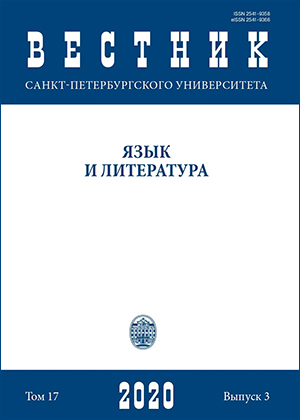Money Makes the World Go ’Round: The pecuniary worldview of modern American proverbs
DOI:
https://doi.org/10.21638/spbu09.2020.310Abstract
No matter in what currency, money rules personal and financial life to a remarkable degree, and it is not surprising that international and national proverb collections contain a plethora of examples from antiquity to the modern age. Many monetary proverbs were coined in the United States with modern American proverbs reflecting this preoccupation with pecuniary issues quite distinctly. Based on about 110 such proverbs coined after the year 1900 it is shown that they contain folk wisdom regarding business, trade, sales, purchase, payment, price, etc. with money playing a dominant role. This can be seen as a reflection of a general American worldview or mentality stemming from the fact that capitalism is part of the social and economic structure of the country. The proverbs under discussion are from The Dictionary of Modern Proverbs (2012) edited by Charles Doyle, Wolfgang Mieder and Fred Shapiro. Some of the modern proverbs give solid financial advice, especially regarding investment in the stock market. While many of them indicate a definite preoccupation with materialistic matters and an interest in accumulating wealth, there are also proverbs that deal with such socio-economic aspects as the widening schism between richness and poverty. There can be no doubt that money and wealth in all their iterations are part of the American capitalist worldview. There are numerous other components to the image of a general American mentality, but business and finance certainly belong to it.
Keywords:
modern American proverbs, mentality, money, worldview
Downloads
Downloads
Published
How to Cite
Issue
Section
License
Articles of "Vestnik of Saint Petersburg University. Language and Literature" are open access distributed under the terms of the License Agreement with Saint Petersburg State University, which permits to the authors unrestricted distribution and self-archiving free of charge.






